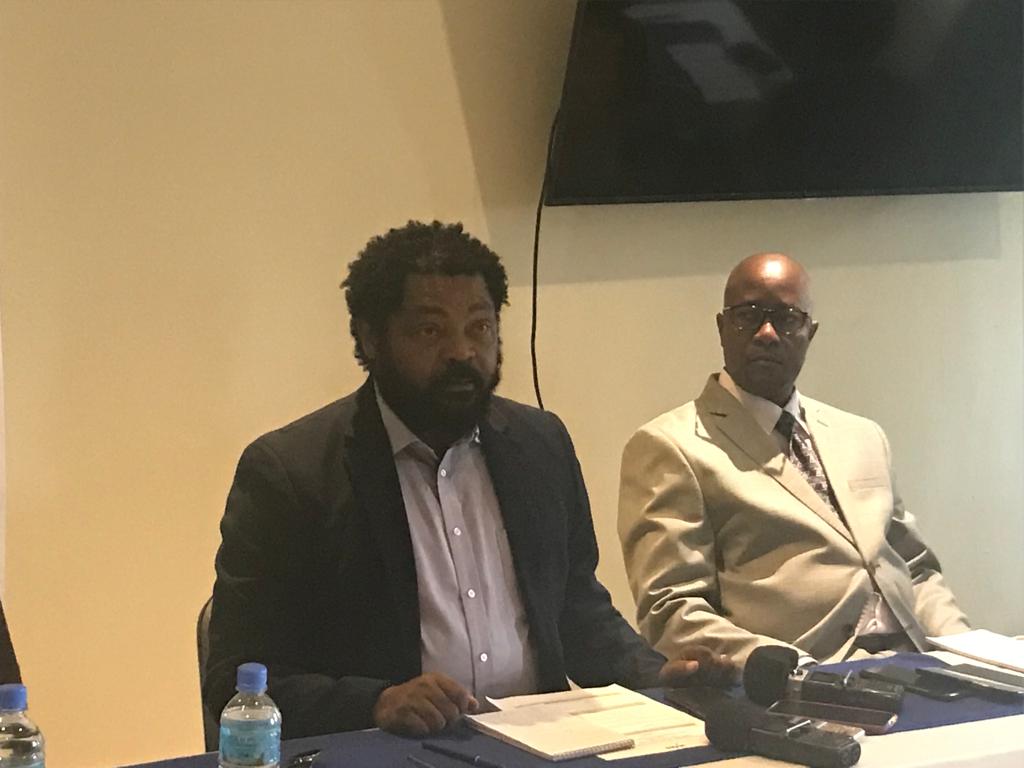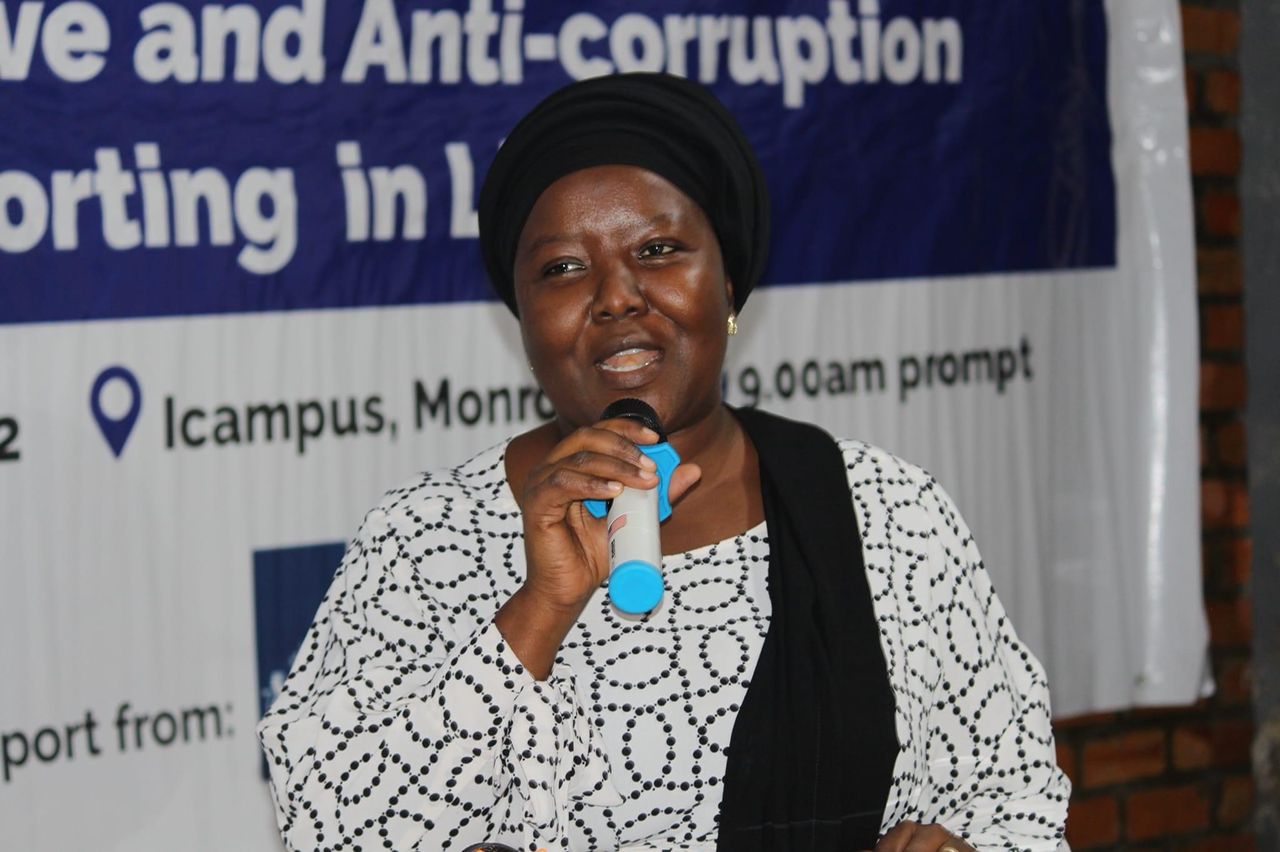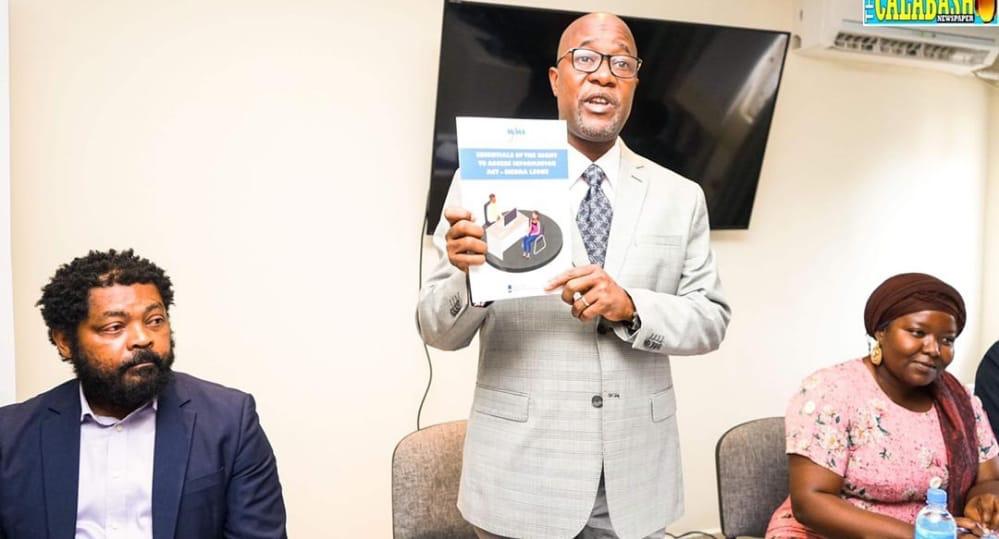Sierra Leone’s Minister of Information and Communication, Mohammed Rahman Swaray, has a headache. It’s not the pain that pounds his head when he is under stress. It’s the headache of fake news.
And ahead of the country’s 2023 presidential and parliamentary elections, he would want a cure.
He found the antidote in the country’s nine-year-old Right to Access Information (RAI) law.
“In this digital age, one of the biggest headaches is fake news. It can only thrive when there is no information,” he said at a workshop to train Sierra Leonean journalists on Investigative and Anti-Corruption Reporting and launch a manual on access to information for journalists.
The one-day workshop was aimed at strengthening journalists’ capacities to use access to information laws to improve investigations and story development.
Organised by Media Foundation for West Africa (MFWA) in collaboration with the Media Reform Coordinating Group (MRCG) and with financial support from the Dutch Foreign Ministry, the workshop comprised of interactive sessions from seasoned media professionals and experience sharing. Specifically, participants reflected on how to use the law on access to information to secure factual information to advance their work.
Regulation before Parliament
Although Sierra Leone passed the RAI law in 2013, its implementation has been haphazard, critics say, with no regulation to give it a shot in the arm.
But Mr Swaray said that bottleneck would soon be removed as the government had laid the Act’s regulatory framework before Parliament on July 28, 2022.
The Regulation is meant to give force to the implementation of the Act, which media watchers say has not been tested as much as it should.
It comes nine years after Sierra Leone passed its RAI law, which promised transparency and accountability but its media have no kind words about its implementation.
However, the Commissioner for the Right to Access Information, Dr Ibrahim Seaga Shaw, said it was the media that was not using the law as much as they should.
According to him, previous training on the law had seen a spike in requests for information on the government’s COVID-19 expenditure.
But media has now taken a nap in the usage of the law.
He, therefore, rallied the media to make good use of the law as they seek transparency and accountability in the governance of the country.
Be different from citizen journalists
The President of Sierra Leone Association of Journalists (SLAJ), Ahmed Sahid Nasralla, agreed.
He said the efficacy of the law would be in its usage.
“If we don’t use the Right to Access information law, we wouldn’t know if it is working,” he said.
With media development experts lamenting the scarcity of investigative journalism in Sierra Leonean media landscape, the SLAJ President said “investigative journalism is what Sierra Leone needs to hold our leaders accountable and promote public interest.”

Seeking to embolden his peers on the use of the RAI law, he said “investigative journalists were not citizen journalists. Ours is to put out factual information and not attack personalities.”
Across the region, access to information commissions sing from the same book of lamentations—inadequate funding. Sierra Leone’s Right to Access Information Commission is no different.
Mr Nasralla, therefore, urged the commission to be creative to have resources and not depend on only the government.
He also had concerns about the inadequate information officers in the ministries, departments and agencies.
“We’re concerned about the implementation of the law. Citizens have the right to ask questions in their own language. That is why it is important to have information officers in all public institutions,” he said.
With the Media Foundation for West Africa championing the implementation of the access to information law across the region, speaker after speaker commended the MFWA and its partners for their capacity-building efforts across West Africa.
A Programme Officer of the MFWA, Adizatu Moro Maiga, had a smile for the compliments.
She observed that the access to information law was not for only journalists.
However, building the capacity of the media on the access to information law, she said would trickle down in empowering the populace.

“Access to information has become a tool for development and accountable governance,” she stated.
The access to information laws globally is meant to empower individuals and civil society to understand the policies with which the public administration and legislators make decisions relating to governance.
However, restrictive interpretations of access to information laws, exceptionally high rates of refusals of requests, or failures to respond, and low levels of guidance and support for implementing officials have been identified as blockages and challenges hindering the effective implementation of access to information laws across Africa.
There are also critical concerns about how well both citizens and the media know the law and how informed government functionaries are with regard to their obligations under the law.
The training workshop for journalists on investigative and Anti-Corruption Reporting was facilitated by Dr Isaac Massaquoi, Lecturer, Faculty of Communication, Media and Information Studies, University of Sierra Leone and Seth J. Bokpe, Senior Reporter, The Fourth Estate, Ghana.
The workshop forms part of the MFWA’s project on “Enhancing Press Freedom, Women’s Digital Rights and Accountable Governance in Ghana, Liberia and Sierra Leone” which is being supported by the Dutch Foreign Ministry through the Embassy of the Kingdom of the Netherlands in Ghana.





